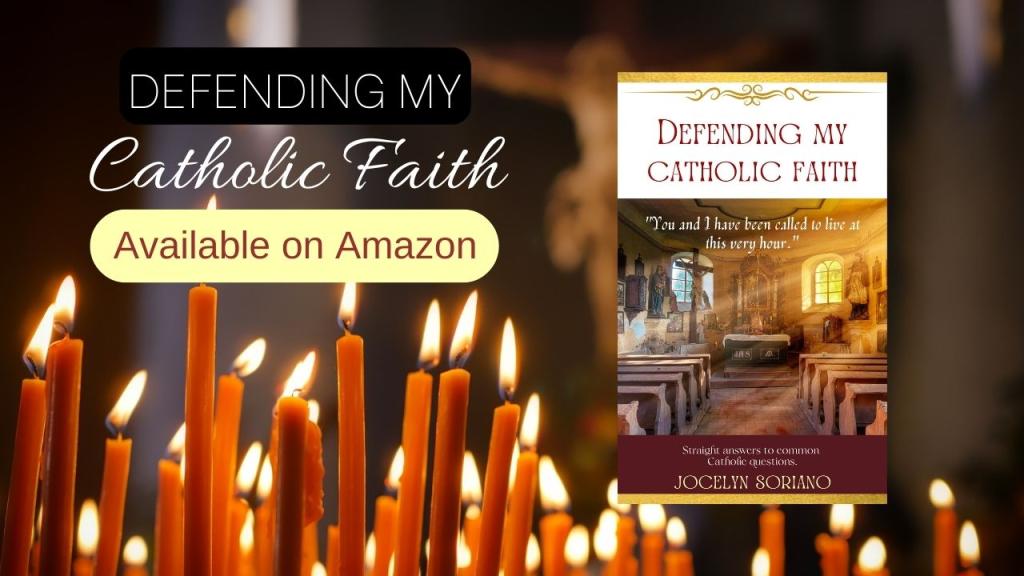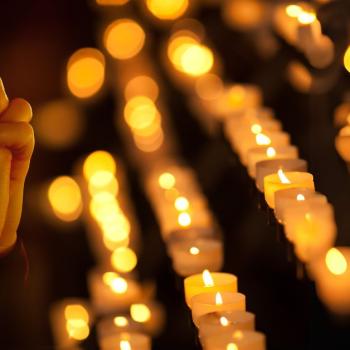
When someone commits a murder, one instantly know that one has done something wrong. To kill someone without a valid excuse like self-defense is a sin that cannot be denied. It is immediately felt as a painful stab in one’s conscience and a heavy guilt burdens the soul henceforth.
That is mortal sin. A clear violation against the laws of God and men. A violation of love (charity).
“When the will sets itself upon something that is of its nature incompatible with the charity that orients man toward his ultimate end, then the sin is mortal by its very object… whether it contradicts the love of God, such as blasphemy or perjury, or the love of neighbor, such as homicide or adultery.…” (CCC 1856)
The problem with other mortal sins being mentioned is that we may not immediately feel that kind of guilt in our hearts. And it is hard to believe that by one act, we absolutely cut off ourselves from goodness and love (charity).
What is considered mortal sin?
It is said that for a sin to be truly mortal, it has to contain three elements:
“Mortal sin is sin whose object is grave matter and which is also committed with full knowledge and deliberate consent.” (CCC 1857)
Let’s think about couples who live together outside marriage. It is clear from Church teachings that living together outside of marriage is a grave matter in itself.
But do couples who do that usually think and feel in the same way?
Let’s also discuss missing mass, which is also considered a grave matter by the Church. Do all people who miss one Sunday mass think about absolutely rejecting God’s love?
“The Sunday Eucharist is the foundation and confirmation of all Christian practice. For this reason the faithful are obliged to participate in the Eucharist on days of obligation, unless excused for a serious reason (for example, illness, the care of infants) or dispensed by their own pastor. Those who deliberately fail in this obligation commit a grave sin.” (CCC 2181)
The problem with “grave matter”
It is very difficult to accuse someone of committing a mortal sin because we do not know the true motivation of one’s heart and soul.
If full knowledge or deliberate consent are not necessary for a sin to be considered mortal, then every person who commits an act considered a “grave matter” by the Church is automatically and immediately cut off from sanctifying grace (the state of grace).
But that is not the case. For a sin to be mortal, one has to willfully choose the evil act with complete knowledge that this one act violates God’s laws.
If all all it takes is committing that “grave matter”, then most Protestants who used to be Catholics would be guilty of mortal sin! Why? Because they do not attend Sunday mass. Neither do they observe fasting during Ash Wednesday or Good Friday (considered to be grave matter).
How “grave matter” affects the soul
Now some people may ask, “What then is the importance of grave matter?”
While it appears that one can be “safe” from mortal sin for as long as there is no full knowledge or deliberate consent, this is also not the case.
Acts are considered “grave” because they pose a threat against sanctifying grace whether we are aware of it or not.
Let’s talk again about missing Sunday mass. While some people may not commit mortal sin by missing one mass on a day of obligation, that doesn’t mean that charity is not lessened in their souls.
By attending mass, we strengthen our relationship with God and the Church. We receive the Holy Eucharist. And by doing so, our soul is nourished with the grace we need to live holy lives.
The more one does not attend mass, the more one neglects to nourish one’s soul. A time may come when the soul has become so famished that it can fall easily into other grave sins. A time may also come when one considers attending mass to be entirely useless and so one falls away from faith eventually.
This is the great danger that may not be immediately obvious to many! And the same is true with other acts considered to be “grave matter”.
The danger of despair
There is another danger that comes with committing mortal sin. And that is the deadly sin of despair.
Despair is when you lose trust in God’s mercy. It is believing yourself irredeemable. That God can no longer forgive you because of the gravity of your sins.
Whenever one feels this way, one must recall how Jesus treated those who were deemed guilty of grave sins also. Think about the woman caught in the act of adultery. Or think about the woman at the well who is living with a man who is not her husband.
How did Jesus talk to them? Did He scold and condemn them? No. Jesus instead proclaimed to them the Good News that frees us from our sins.
“And if people are hurt, what does Jesus do? Scold them because they are hurt? No, He comes and He carries them on His shoulders.” – Pope Francis
Trust in Divine Mercy
It is not because we can always be perfect that we can enter heaven. It is because we can trust in God’s Mercy and receive His forgiveness and love.
Even at the very last hour, we must never lose hope. If we can sincerely repent for our sins out of love for God and trust in His mercy, we can also hear the same words of Jesus towards the repentant thief:
“Amen, I say to you, today you will be with me in Paradise.” – Luke 23:43 (NABRE)
“It is not because I have been preserved from mortal sin that I lift up my heart to God in trust and love. I feel that even had I on my conscience every crime one could commit, I should lose nothing of my confidence: my heart broken with sorrow, I would throw myself into the Arms of my Saviour. I know that He loves the Prodigal Son, I have heard His words to St. Mary Magdalen, to the woman taken in adultery, and to the woman of Samaria. No one could frighten me, for I know what to believe concerning His Mercy and His Love. And I know that all that multitude of sins would disappear in an instant, even as a drop of water cast into a flaming furnace.” — St. Therese of Lisieux
Jocelyn Soriano is a freelance writer and the author of Defending My Catholic Faith. “You and I have been called to live at this very hour.” Do you have questions or doubts about the Catholic faith?















